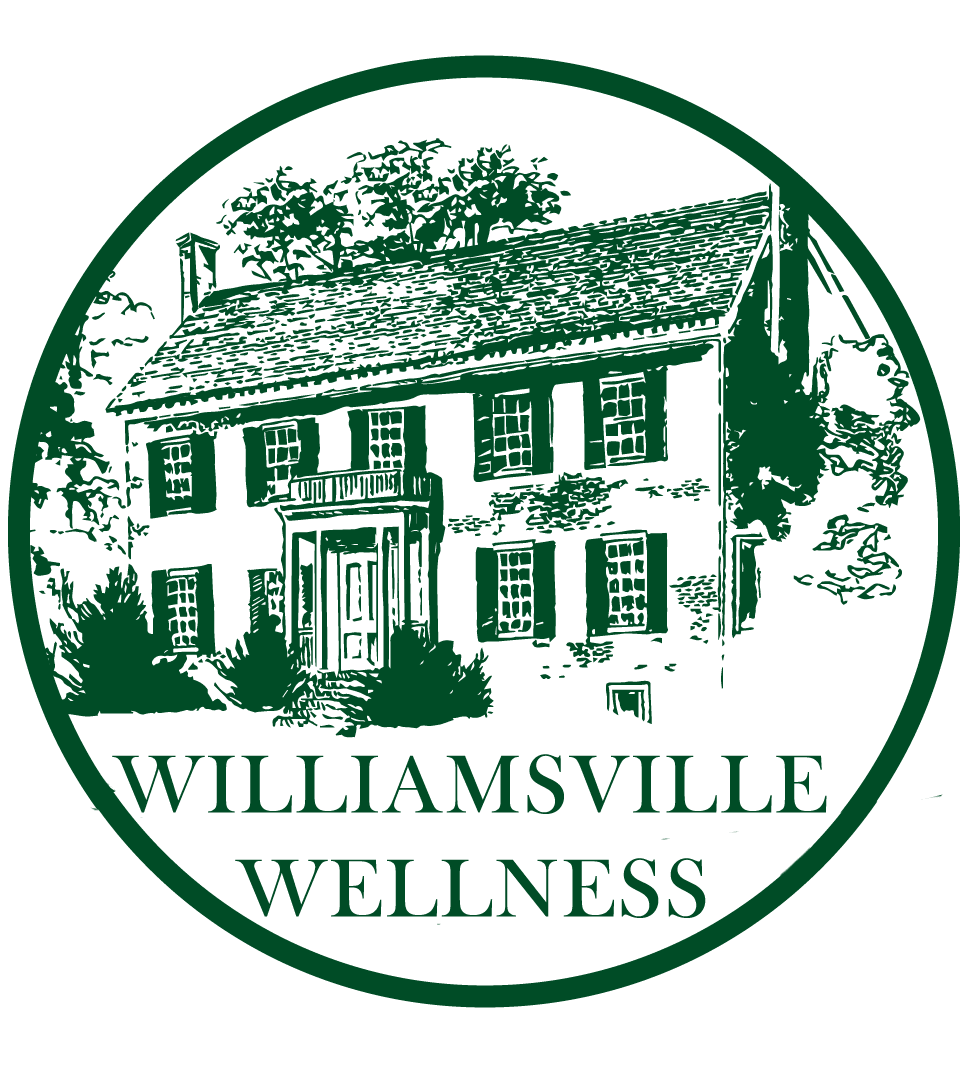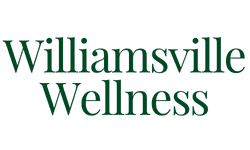How to Talk to Your Boss About Going to Rehab
Navigate this important conversation with confidence while protecting your job and focusing on recovery
📚 What You'll Discover in This Guide
- Understanding Your Legal Protections
- The Family and Medical Leave Act (FMLA)
- The Americans with Disabilities Act (ADA)
- Preparing for the Conversation
- Choosing the Right Time and Place
- What to Say (And What Not to Say)
- Documentation and Follow-Up
- Treatment Options That Support Employment
- Returning to Work After Treatment
Deciding to seek treatment for alcohol addiction or drug addiction represents a courageous and life-changing choice. However, one of the most significant barriers preventing people from seeking help is the fear of losing their job. The concern is understandable—your career provides financial stability, health insurance, professional identity, and structure to your daily life. The thought of jeopardizing all of this can feel overwhelming enough to delay or avoid treatment altogether.
But here's the important truth: federal laws exist specifically to protect employees who seek treatment for substance use disorders. You have rights, and understanding these protections can transform this daunting conversation from a career-ending risk into a manageable step toward recovery. While discussing addiction with your employer may feel vulnerable, approaching the conversation with preparation, knowledge of your legal rights, and a clear plan can help you maintain your job security while prioritizing your health.
💡 Important Truth
Thousands of people successfully navigate treatment while maintaining their employment every year. The legal protections in place are specifically designed to support your recovery journey without sacrificing your career.
According to the Substance Abuse and Mental Health Services Administration (SAMHSA), approximately 10.8 million full-time workers in the United States have a substance use disorder. Many of these individuals successfully seek treatment while maintaining their employment, thanks to federal protections and employer support programs.
This comprehensive guide will walk you through everything you need to know about discussing residential addiction treatment with your employer—from understanding your legal rights to preparing for the conversation, choosing the right words, and planning your return to work.

Preparing thoroughly before your conversation helps ensure the best possible outcome
Understanding Your Legal Protections
Before approaching your employer, it's essential to understand the legal framework that protects employees seeking addiction treatment. Two federal laws provide significant safeguards: the Family and Medical Leave Act (FMLA) and the Americans with Disabilities Act (ADA). These laws were enacted specifically to prevent discrimination and job loss when employees need medical treatment, including treatment for substance use disorders.
The existence of these protections reflects an important recognition: addiction is a medical condition, not a moral failing or character flaw. When you seek treatment, you're addressing a health condition that requires professional care—just as you would for any other serious medical issue. Understanding your rights under these laws empowers you to approach the conversation with your employer from a position of strength rather than fear.
However, it's important to note that these protections come with specific eligibility requirements and conditions. Not every employee or employer is automatically covered, and the protections don't apply to employees who are currently using illegal drugs. Understanding these nuances before your conversation helps you accurately assess your situation and plan accordingly.
Additionally, many employers go beyond federal requirements, offering Employee Assistance Programs (EAPs), additional leave options, or other support services for employees dealing with addiction. These company-specific resources can significantly ease your transition into and out of treatment. When you're ready to seek help, exploring flexible treatment program options can help you find a schedule that works with your employment situation.
The Family and Medical Leave Act (FMLA)
The Family and Medical Leave Act, enacted in 1993, provides eligible employees with up to 12 weeks of unpaid, job-protected leave per year for specific family and medical reasons. Substance use disorder treatment qualifies as a "serious health condition" under FMLA, making it one of the most important protections for employees seeking addiction treatment.
Under FMLA, if you qualify, your employer cannot fire you, demote you, or refuse to promote you because you took leave for addiction treatment. Your position (or an equivalent position) must be held for you during your absence, and your health benefits must continue as if you were still working. This protection extends beyond just attending treatment—it also covers leave taken to care for a family member who is receiving addiction treatment.
Employer Requirements
Your employer must be a public agency or a private company with 50 or more employees within a 75-mile radius of your worksite
Employment Duration
You must have worked for your employer for at least 12 months (not necessarily consecutive)
Hours Worked
You must have worked at least 1,250 hours during the past 12 months (approximately 24 hours per week)
Treatment Purpose
The leave must be used specifically for treatment—FMLA does not protect absences due to active substance use
It's crucial to understand that FMLA leave is typically unpaid, though you may be able to use accrued paid time off or sick leave during this period. Some employers require you to use paid leave concurrently with FMLA leave, while others allow you to choose. Your health insurance benefits generally continue during FMLA leave, which can significantly help with treatment costs.

Understanding your legal rights and benefits is essential before the conversation
One important limitation: if your company has a substance use policy that includes provisions about treatment enrollment, they may still be able to terminate employment even if you're on FMLA leave. This is why reviewing your company's specific policies before the conversation is so important. Your HR department can clarify how your company implements FMLA and any additional protections or requirements specific to your workplace.
🔒 FMLA Protection
FMLA provides job protection, not income protection. Plan your finances accordingly, as the leave is typically unpaid unless you use accrued paid time off.
The Americans with Disabilities Act (ADA)
The Americans with Disabilities Act, enacted in 1990, prohibits discrimination against individuals with disabilities in all areas of public life, including employment. Substance use disorders—when they meet certain conditions—are considered disabilities under the ADA, providing additional protections for employees seeking treatment.
The ADA applies to employers with 15 or more employees and protects individuals who:
- Have a history of substance use disorder and are in recovery
- Are participating in or have completed a supervised rehabilitation program
- Are no longer using illegal drugs
Importantly, the ADA does not protect individuals who are currently using illegal drugs. However, if you're seeking treatment, the law recognizes this as taking steps to address your condition, which can provide protection. The ADA prevents employers from:
- Refusing to hire you because you have a history of addiction or attended treatment
- Firing you for seeking addiction treatment
- Discriminating against you based on your participation in treatment
- Refusing to provide reasonable accommodations for your recovery
Under the ADA, employers may be required to provide "reasonable accommodations" for your recovery. This might include modified work schedules to attend outpatient addiction treatment or support group meetings, temporary reassignment to less stressful positions during early recovery, or other modifications that don't create an undue hardship for the employer.
🛡️ ADA Protections
The ADA also provides strong confidentiality protections. Your employer cannot disclose your medical information, including your need for addiction treatment, without your consent. Only HR and relevant supervisors should know the specifics of your leave.
It's worth noting that the ADA does not prevent employers from maintaining a drug-free workplace, conducting drug testing, or disciplining employees who use substances on the job or whose job performance is significantly impaired. The key distinction is that seeking treatment demonstrates you're taking responsibility for addressing the condition, which is protected behavior.
Preparing for the Conversation
Thorough preparation is the foundation of a successful conversation with your employer about entering treatment. The more prepared you are, the more confident and clear you'll be during this important discussion. Start by gathering all relevant information about your rights, company policies, and treatment options.
First, review your employee handbook and any company policies related to substance use, medical leave, and Employee Assistance Programs (EAPs). Many companies have specific procedures for requesting medical leave, and following these protocols demonstrates your professionalism and respect for company processes. If your company offers an EAP, this program may provide short-term counseling, treatment referrals, and support services at no cost to you.
Next, consider your treatment options and their impact on your work schedule. Residential treatment programs typically require a full-time commitment ranging from 28 days to several months, while outpatient programs offer more flexibility. Understanding which type of treatment you need and its duration helps you provide concrete information to your employer about your expected absence.

Approach this conversation as a professional discussion about your health needs
Consider consulting with your healthcare provider or an addiction treatment center before speaking with your employer. They can provide documentation of your need for treatment, explain the medical necessity of the program, and potentially write a letter supporting your FMLA request. Having this medical documentation ready can streamline the leave approval process. For specialized needs like gambling addiction treatment, ensure you understand how this is covered under your health plan and company policies.
Prepare a brief, professional explanation of your situation. You don't need to share every detail of your struggles with addiction, but you should be ready to clearly communicate that you need medical leave for treatment of a health condition. Practice this conversation with a trusted friend, therapist, or sponsor to build confidence and refine your approach.
Finally, develop a preliminary plan for how your work responsibilities will be handled during your absence. This shows your employer that you're committed to minimizing disruption and demonstrates your continued professional dedication even as you prioritize your health.
📋 Preparation Checklist
Before the conversation: (1) Review company policies, (2) Understand your legal rights, (3) Choose your treatment program, (4) Gather medical documentation, (5) Prepare a work coverage plan, (6) Practice what you'll say
Choosing the Right Time and Place
The timing and setting of your conversation with your employer can significantly impact how it's received. This discussion deserves privacy, adequate time, and your employer's full attention—not a hurried hallway encounter or a brief mention during a busy meeting.
Request a private meeting with your direct supervisor or HR representative, clearly stating that you need to discuss a personal health matter that requires medical leave. Don't provide details in the meeting request itself; simply indicate that you have something important to discuss that will require their time and attention. Most managers will respect this approach and schedule appropriate time.
Choose a time when your supervisor is typically less stressed and has time for a meaningful conversation. Avoid Mondays when they're catching up from the weekend, late Fridays when they're wrapping up the week, or periods when major projects are due. Mid-morning or mid-afternoon on a Tuesday, Wednesday, or Thursday often works well.
The conversation should take place in a private setting—ideally an office or conference room where you won't be interrupted or overheard. This protects your privacy and allows for an honest, open discussion. If you work remotely, a scheduled video call or phone conversation can be equally appropriate, as long as both of you are in private locations.
Consider the timing in relation to your treatment start date as well. While you want to provide as much advance notice as possible, don't delay seeking treatment if you're in crisis. If you're in immediate need of help, employers are generally understanding, especially when you present it as a medical emergency. In these situations, contacting HR directly might be more appropriate than going through your direct supervisor first.
If you're concerned about your supervisor's potential reaction, or if there are complex workplace dynamics, consider whether speaking with HR first might be more appropriate. HR professionals are trained to handle sensitive situations and can often guide you through the process while ensuring your rights are protected.
What to Say (And What Not to Say)
How you frame the conversation can make a significant difference in its outcome. The goal is to communicate clearly and professionally while maintaining appropriate boundaries about your personal medical information. You want to be honest enough to explain your need for leave, but you're not required to share every detail of your addiction history.
Start the conversation by thanking your supervisor for their time and explaining that you need to discuss a medical matter that requires treatment. Here are several effective ways to frame the conversation:
The Medical Approach
"I've been dealing with a health condition that requires professional treatment. My healthcare provider has recommended that I enter a treatment program, and I'd like to request medical leave under FMLA to address this condition."
The Direct Approach
"I need to take medical leave to attend treatment for substance abuse. I've researched our company's policies and FMLA, and I'm eligible for job-protected leave. I'm committed to returning as a healthier, more productive employee."
The Solution-Focused Approach
"I've identified a health issue that's been affecting my wellbeing, and I've found a treatment program that will help me address it. I've prepared a plan for covering my responsibilities during the [duration] I'll need for treatment."

A private, professional conversation sets the right tone for this important discussion
Throughout the conversation, maintain these important principles:
Be honest but maintain appropriate boundaries. You don't need to share the specific details of your struggles with addiction, your lowest moments, or your personal history. It's sufficient to explain that you have a medical condition requiring treatment.
Emphasize your commitment to your job. Make it clear that seeking treatment is about becoming a better, healthier employee and that you're committed to returning to work and maintaining your professional responsibilities. Many employees find that comprehensive co-occurring disorders treatment helps them address all aspects of their health.
Present your plan proactively. Show that you've thought through the logistics—how long you'll be gone, how your work will be covered, when you expect to return, and how you'll stay connected if appropriate. This demonstrates professionalism and consideration for your team.
Reference your legal rights if appropriate. If you sense hesitation or concern from your employer, you can respectfully mention your rights under FMLA and ADA. However, approach this carefully—you want to inform rather than threaten. A statement like, "I've confirmed that I'm eligible for FMLA leave, which I understand protects my position during treatment" is professional and informative.
⚠️ What Not to Say
Avoid apologizing excessively or positioning your need for treatment as a personal failing. Phrases like "I'm sorry I'm such a problem" or "I know this is a terrible inconvenience" undermine your position. Seeking treatment is responsible, not problematic. Also avoid making promises about your recovery you can't guarantee—recovery is a journey, not an instant fix.
If your employer asks questions you're not comfortable answering, it's acceptable to redirect them to HR or indicate that you prefer to keep certain medical details private. Under HIPAA and ADA regulations, you're not required to disclose specific medical details beyond what's necessary to establish your need for leave and any required accommodations.
Documentation and Follow-Up
Proper documentation protects both you and your employer throughout this process. After your initial conversation, follow up with a formal written request for medical leave. This creates a clear record of your request and ensures there's no miscommunication about dates, expectations, or agreements.
Your written leave request should include:
- The dates you're requesting leave (start date and expected return date)
- The reason for leave (treatment for a medical condition)
- Reference to FMLA if applicable
- Your commitment to providing any required medical certification
- Your plan for work coverage during your absence
Your employer may require medical certification from your healthcare provider or treatment program. Under FMLA, they can ask for documentation that verifies:
- You have a serious health condition requiring treatment
- The probable duration of the condition
- The appropriate medical facts about the condition
- That you're unable to perform your job functions due to this condition
Your treatment provider can supply this documentation without revealing specific details about your addiction history. The medical certification should be sufficient to establish the legitimacy of your leave request without unnecessarily disclosing private medical information.

Organized documentation helps ensure a smooth leave approval process
Keep copies of all documents related to your leave request, including:
- Your written leave request
- Any medical certification provided
- Your employer's approval of leave
- Communications about return-to-work plans
- Any agreements about work responsibilities during your absence
Under FMLA regulations, your employer must respond to your leave request within five business days. If they need additional information or medical certification, they should communicate this clearly and provide reasonable time for you to supply it.
Before leaving for treatment, arrange a brief check-in plan with your supervisor or HR if appropriate. Some employees prefer minimal contact during treatment to focus fully on recovery, while others benefit from occasional updates on major work developments. Discuss what level of contact, if any, works for both you and your employer. Understanding the first 90 days of sobriety can help you set realistic expectations for your return.
📝 Documentation Protects You
Maintaining thorough documentation of your leave request, approvals, and agreements creates a clear record that protects your interests if any disputes arise. This documentation can be crucial if you need to file a complaint with the Equal Employment Opportunity Commission or pursue other legal remedies.
Treatment Options That Support Employment
When considering addiction treatment, understanding your options can help you choose a program that best addresses your needs while minimizing employment disruption. Different treatment levels offer varying intensities of care and time commitments.
Residential Treatment Programs provide 24-hour care in a structured environment, typically ranging from 28 days to several months. These programs are particularly beneficial for individuals who:
- Need medical detoxification
- Have severe addiction requiring intensive support
- Lack a stable, supportive home environment
- Have tried outpatient treatment unsuccessfully
- Need to step away from triggering environments
Residential programs provide comprehensive care including medical supervision, individual and group therapy, skills training, and 24/7 support. While they require taking full-time leave from work, they offer the highest level of structure and support, which can be critical for achieving sustained recovery. Many find that 28-day residential programs provide an effective balance of intensive treatment and reasonable time away from work.
Intensive Outpatient Programs (IOP) allow you to live at home while attending treatment sessions several times per week, typically 9-12 hours weekly. These programs work well for individuals who:
- Have completed residential treatment and need ongoing support
- Have mild to moderate addiction
- Have strong family or social support systems
- Cannot take extended leave from work
- Have job flexibility for scheduled treatment sessions
Many IOP programs offer evening or weekend sessions specifically designed for working professionals. This flexibility allows you to maintain employment while receiving quality treatment. Virtual outpatient programs have also expanded access, allowing you to attend sessions from home or even during work breaks if you have privacy.
Partial Hospitalization Programs (PHP) provide intensive daytime treatment (typically 5-6 hours daily, five days per week) while allowing you to return home in the evenings. PHP offers more intensive care than IOP but less than residential treatment, making it a middle-ground option for those who need substantial support but can maintain some work schedule with employer accommodation.
When discussing treatment options with your employer, be honest about what level of care you need. While you might feel pressure to minimize time away from work, choosing inadequate treatment that leads to relapse ultimately causes more employment disruption than taking sufficient time for proper treatment initially.
🏥 Treatment Intensity Matters
The appropriate level of treatment depends on factors including addiction severity, previous treatment history, co-occurring mental health conditions, and support system strength. A professional assessment can help determine which level of care best suits your needs.
Many treatment centers also offer continuing care planning that helps you transition back to work successfully. This might include weekly therapy sessions, support group participation, or periodic check-ins with treatment staff as you resume your professional responsibilities. Building these supports into your treatment plan demonstrates to your employer that you're taking a comprehensive, long-term approach to recovery.
Returning to Work After Treatment
Completing treatment is a significant accomplishment, but returning to work requires its own preparation and strategy. The transition back to your professional environment while maintaining your recovery needs careful planning and ongoing support.
Before your expected return date, communicate with your employer or HR about your return-to-work plans. Confirm your return date, discuss any accommodations you might need, and review any return-to-work agreements or policies your employer may have. Some employers require employees returning from substance use treatment to sign return-to-work agreements that may include provisions like:
- Agreeing to remain abstinent from substance use
- Participating in ongoing treatment as recommended by providers
- Submitting to drug testing (if company policy allows)
- Attending support groups or aftercare programs
- Reporting any relapse or concerns about maintaining sobriety

Returning to work after treatment represents a new chapter in your recovery journey
While these agreements might feel restrictive, they actually support your recovery by creating accountability and clear expectations. Many people find that this structured support helps them maintain their sobriety, especially during the vulnerable early months of return. Understanding how relationships impact recovery can also help you navigate workplace dynamics.
Consider what accommodations might support your ongoing recovery. Under the ADA, employers must provide "reasonable accommodations" for employees in recovery from substance use disorders, as long as these accommodations don't create undue hardship for the employer. Reasonable accommodations might include:
- Modified work schedules to attend therapy or support group meetings
- Time off for medical appointments
- Temporary modification of job duties if certain tasks are particularly triggering
- Reassignment away from environments where alcohol or drugs are present (if feasible)
Not every recovery situation requires formal accommodations, but knowing they're available can provide peace of mind as you navigate your return to work. You may find that simple strategies like scheduling important meetings for times when you're typically most stable, taking regular breaks, or working from home occasionally (if your job allows) can significantly support your recovery without requiring formal employer accommodations.
Establish a strong support system for managing work stress without turning to substances. This might include:
- Regular therapy sessions with an addiction counselor
- Participation in support groups like AA, NA, or SMART Recovery
- Check-ins with your sponsor or accountability partner
- Healthy stress management techniques like exercise, meditation, or hobbies
- Ongoing connection with your treatment program through aftercare services
Be prepared for the reality that returning to work can be emotionally challenging. You may face questions from coworkers about your absence, encounter workplace stressors that previously triggered substance use, or simply feel overwhelmed by the transition. Having a plan for managing these situations—including knowing when to reach out for support—is crucial. Many find that continuing virtual IOP after residential treatment provides valuable ongoing support.
You're not required to disclose your treatment history to coworkers, and you have the right to keep your medical information private. If colleagues ask about your absence, a simple, honest response like "I took medical leave to address a health concern, and I'm glad to be back" is sufficient. You control how much information you share.
Set realistic expectations for yourself during the transition period. Early recovery requires significant mental and emotional energy, so be patient with yourself as you readjust to work demands while managing your recovery needs. Consider starting back gradually if your employer allows—perhaps working reduced hours for the first week or two can ease the transition.
Finally, remember that seeking help if you're struggling doesn't mean your treatment failed. Addiction recovery isn't always linear, and reaching out for additional support when needed demonstrates strength and commitment to your recovery. Your employer, especially if they've supported you through treatment, will generally prefer that you address concerns early rather than allowing them to escalate into a crisis.
Moving Forward with Confidence
Talking to your employer about entering addiction treatment is undoubtedly one of the most vulnerable and challenging conversations you'll ever have in your professional life. However, with proper preparation, knowledge of your legal rights, and a clear plan, this conversation can be the beginning of a transformative journey toward both personal health and professional success.
The fear of jeopardizing your career is real and understandable, but the alternative—allowing untreated addiction to continue affecting your life, health, and job performance—carries far greater risk. Addiction rarely improves on its own, and delaying treatment often leads to more severe consequences, both personally and professionally.
Remember these key principles as you move forward:
- You have legal rights that protect your job when seeking treatment for addiction
- Thorough preparation and clear communication increase the likelihood of a positive outcome
- Seeking treatment demonstrates responsibility and commitment to your wellbeing
- Most employers prefer to support employees in recovery rather than lose valuable team members
- Ongoing support and aftercare are essential for maintaining recovery while working
Thousands of people successfully navigate addiction treatment while maintaining their careers every year. Many report that their employers were more supportive than they anticipated and that their professional relationships actually strengthened through the experience of honest communication and recovery.
🌟 Your Career and Recovery Can Coexist
You don't have to choose between your career and your recovery—with the right approach, legal protections, and support, you can prioritize your health while maintaining your professional life. Many people find that recovery actually enhances their work performance, relationships, and overall career satisfaction.
As you prepare for this conversation and begin your treatment journey, remember that asking for help is not a sign of weakness—it's an act of courage and self-respect. Your decision to seek treatment protects not only your career but also your health, relationships, and future. The temporary discomfort of this conversation is vastly outweighed by the lasting benefits of recovery. Exploring comprehensive resources like recovery stories from others can provide encouragement as you begin your own journey.
Take the first step with confidence, knowing that legal protections, professional support, and proven treatment approaches are all available to help you succeed in both your recovery and your career.
Ready to Take the First Step Toward Recovery?
Don't let fear of losing your job prevent you from getting the help you need. Our experienced team at Williamsville Wellness understands the challenges of balancing addiction treatment with professional responsibilities. We offer flexible treatment programs designed to support your recovery journey while respecting your career obligations.
Whether you need residential treatment, outpatient services, or guidance on navigating the conversation with your employer, we're here to help. Our addiction treatment specialists can work with you to develop a comprehensive plan that addresses both your recovery needs and employment concerns.
Take the courageous step toward lasting recovery today—your career, health, and future are all worth protecting.
📞 Call 804-655-0094Speak with a compassionate addiction specialist about our treatment programs, learn about your options for maintaining employment during treatment, and discover how we can support your journey to recovery. Calls are 100% confidential.

